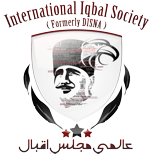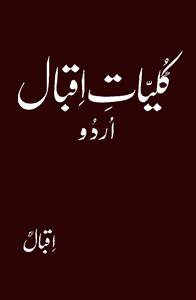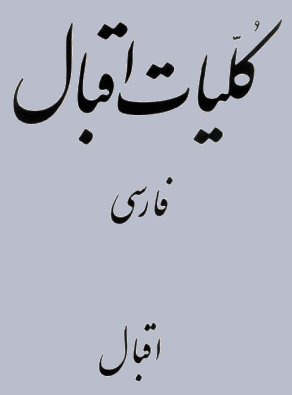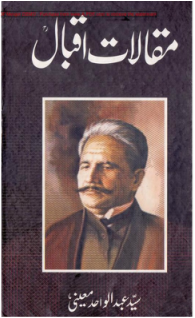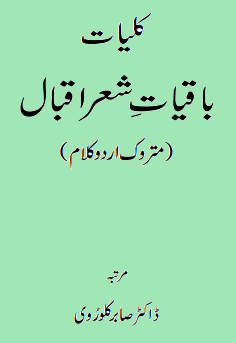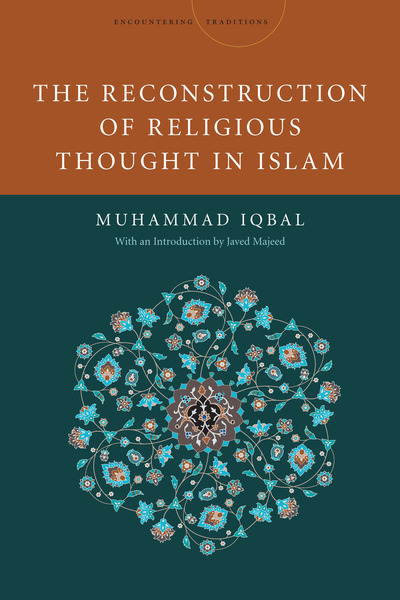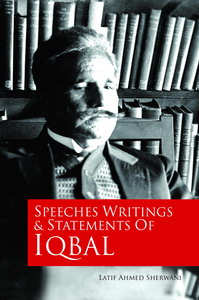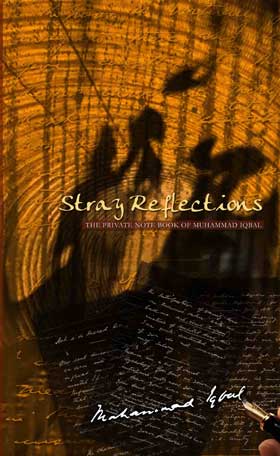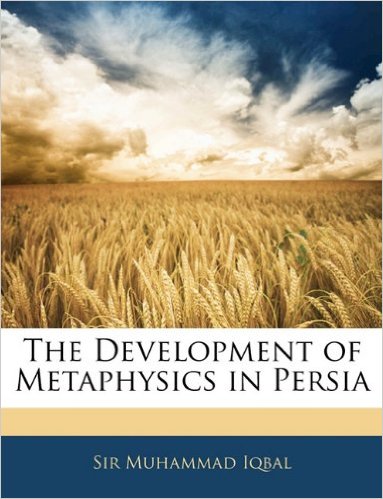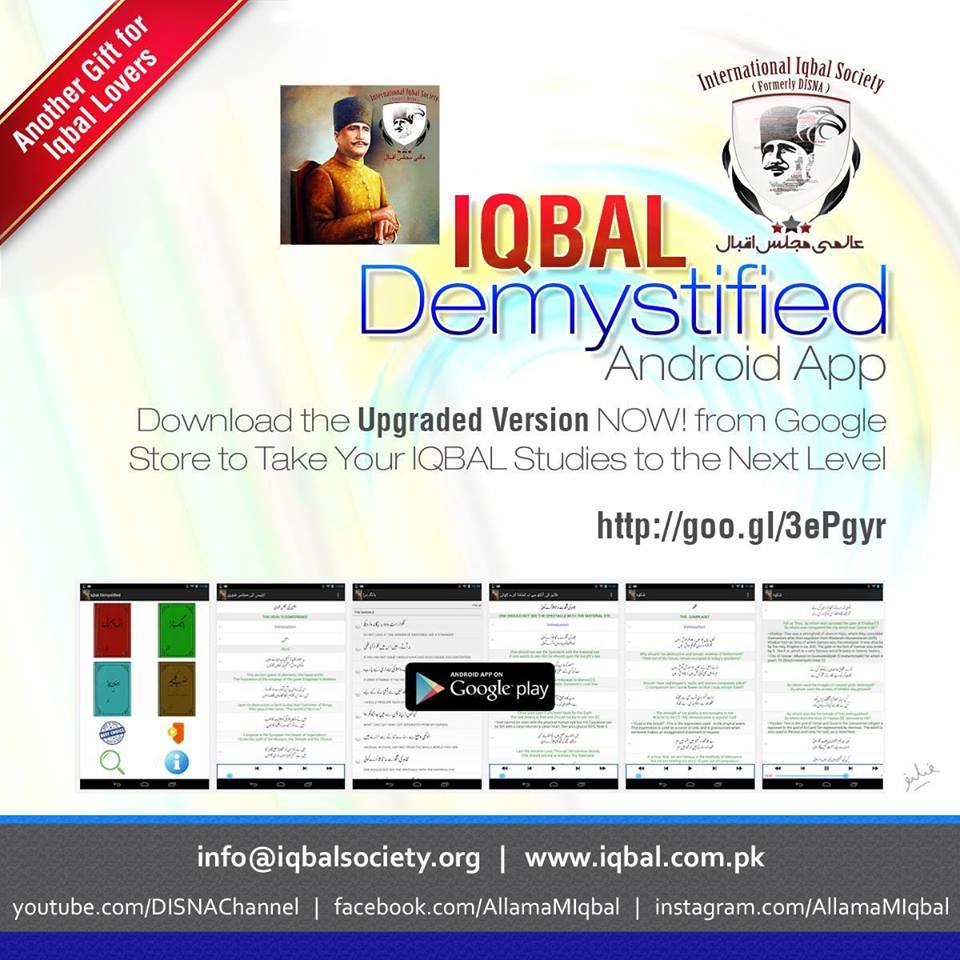Muhammad Iqbal`s Conception of God
Farhan A. Shah is a Muslim humanist and MA student working with the faculty of theology, University of Oslo. He is currently developing a thesis formulating an "Islamic process-humanism" using process thought and Qur`anic insights of the Muslim humanist and philosopher Muhammad Iqbal (1877-1938).
Muhammad Iqbal`s Conception of God
by Farhan A. Shah
Faculty of Theology, University of Oslo
Muhammad Iqbal`s lifelong project can be summarised as follows:
"The task of restoring God to the public and the private spheres, not in the way it is visualized and enacted nowadays, but in the more subtle and time-tested manner of elucidating the essential relationship between the human and the Divine; reaching for the human heart through his wisdom poetry and, through the medium of his Urdu and English prose, removing obstacles which make it difficult or impossible for the mind to understand." (1)
This is indeed the case. Even a cursory examination of Iqbal`s poetic and prosaic works reveal the “center” of his thought, i.e., a pragmatic God. Understood as a reality touching the heart, God is the “life-blood” of his thinking.
Commenting on various definitions of religion, Professor H.J. Paton in his illuminating book The Modern Predicament: A study in the Philosophy of Religion (1955) asserts; “For any serious view of religion, it is always possible to find another equally serious, which seems to be its precise opposite”.
The same goes for the plurality of views of The Divine. While the existence of a supernatural, sovereign Divine power is rarely called into question and challenged by adherents of various religious systems, their conceptions as to its nature are as obscure and indefinite as are the definitions of the phenomena religion itself. Of course there are many religions, and each will have its distinctive approach. For my part, I will focus exclusively on Muslim religious thought.
Mostly, we have directed insufficient attention to the conception of God in which we believe, and to the manner in which our thoughts and beliefs are influenced by the concept of God we sincerely hold. This is unfortunate, because, as Iqbal makes clear, God is the life-blood of our most intimate convictions. Let us turn to him.
* Iqbal recognizes that, for us Muslims, belief in the Diving Being is the the edifice of life (deen). Our very character and conduct of life depend deeply on our convictions about God: how we understand God's nature, God's power, God's relationship to human beings, God's guidance, and how we understand our own place in a wider universe embraced by God. Accordingly, if we are Muslim theologians and philosophers, Iqbal encourages us to to ask following significant questions:
* Do our images of God, The Divine Self, encourage (what Iqbal describes as) a “higher humanity”? Or do they promote and generate sectarianism/fragmentation?
* Do our convictions in God promote planetary well-being or destruction?
* Do our beliefs about God encourage justice, equality, solidarity, freedom and dignity or do belief in God inspire hatred and ill will towards our fellow beings?
* Is God portrayed as a Creator who works through cohesive, unilateral power (leaving no room for creaturely agency) or through persuasion and mutual partnership?
* Finally yet importantly, does our concept of God create a humanistic focus or a ritualistic one? In order to reform the ossified theological thought in Islam, these questions need adequate and sufficient answers.
Let us turn, then, to how Iqbal himself answered these questions.
1.1 The Ultimate Ego
One of the important tasks of modern Islamic theology is to define an adequate concept of God and God's relation to the natural and the human world. Iqbal's aim is to form just such a theistic-naturalistic worldview.
To understand his approach, we can consider Iqbal's The Reconstruction of Religious Thought in Islam, which consists of various lectures delivered at different universities in British India. This book reflects Iqbal`s intellectual and theological climax, in which he forms a comprehensive system by creative synthesis. Here Iqbal`s interpretations of God`s omnipotence (all-powerful), omniscience (all-knowing) and God-man relationship differ in a significant way from the orthodox, mystical understanding in Muslim history handed down from one generation to another.
According to Iqbal, God is the Ultimate Ego, the Ultimate Reality, the Perfect Self, the Supreme Ego, the Absolute Self, presented both as immanent and transcendent. God is immanent (in space-time) since God manifests God's very self in the visible domain of nature, as a creative impulse/push towards relative perfection. Says the Scripture (Qur`an): “Unto God belongs the East and the West. Wherever you go, whichever way you turn, there is God´s Countenance” (2, 115).
Yet, God transcends the spatio-temporal arena and exists externally as its ground. Iqbal, in the third chapter of his Reconstruction, says: “The universe cannot be regarded as an independent reality standing in opposition to Him”. God is permanent in His essence, eternal (not infinity of temporal points but a scale of timelessness), yet in the natural world (serial time) every day a new aspect of His creativity and glory is demonstrated and presented to our view.
1.2 God and Omniscience
In classical theology and theism, God is conceived as omniscient being. If omniscient (Divine knowledge) entails “a single indivisible act of perception which makes God immediately aware of the entire sweep of history, regarded as an order of specific events, in an eternal now” (3), then, this, according to Dr. Iqbal, indicates a “closed universe, a fixed futurity, a predetermined, unalterable order of specific events which, like a superior faith, has once for all determined the directions of God`s creative activity”. (4) If we accept the notion of the Divine Will as dependent on an order of specific predetermined events, would not then such a notion be antithetic to God`s living incessant creative activity? And, would not this idea undermine man`s power of free-will? Divine omniscience, according to Iqbal, does not imply a timeless vision of the futurity in its actuality (complete knowledge about what will happen in the future). On the contrary, God knows the actual (the existent) as actual, while the future exists as possibilities to be actualized. Iqbal asserts: “The future certainly pre-exists in the organic whole of God`s creative life, but it pre-exists as an open-possibility, not as a fixed order of events with definite outlines." (5) Engaged with the notion of Divine knowledge, Iqbal provides the reader (audience) with an illustration to help us in comprehending what he means. He goes on to say:
“… Suppose, as sometimes happens in the history of human thought, a fruitful idea with a great inner wealth of applications emerges into the light of your consciousness. You are immediately aware of the idea as a complex whole; but the intellectual working out of its numerous bearings is a matter of time. Intuitively all the possibilities of the idea are present in your mind. If a specific possibility, as such, is not intellectually known to you at a certain moment of time, it is not because your knowledge is defective, but because there is yet no possibility to become known…” (6)
In other words: God does not know the future in its complete actuality. God does not fully know what the result of any specific event or encounter will be in its totality until it materialises and unfolds wholly in the future. The knowledge of the Divine evolves and “grows” in relationship to the ongoing evolution of the universe. Nevertheless, if a specific possibility or future-knowledge is not known by God at a definite moment of time, then, this does not signify God`s defective omniscient. Rather, it only means, according to Iqbal, that there is yet no future-knowledge to be known because the future events are still in becoming and not wholly settled series of actuality. Such a conception of omniscience does justice to the elements of spontaneity and novelty (freedom) inherent in the make-up of finite egos.
If the future were pre-determined at a higher cosmic level by God then novelty, creativity, human freedom and spontaneity of life would be oxymoronic. Humanity would have been reduced to a fully determined entity, machinelike. Is Iqbal suggesting that God voluntarily circumscribes this scope of foreknowledge of future encounters in order to let freedom exist? This, then, would tend to make omniscience a matter of possessing a quality or potential to know rather than having specific foreknowledge.
We note that Iqbal is sharply departing from the classical notion of God`s omniscience, which portrays the Divine Being both as knower of the visible as well as the invisible. And, since God surpasses the divisible time, to God there is only an “eternal now/present”. Hence, we, the planetary beings, only know what the future holds as the future becomes our present moment. Divine omniscience does not limit future free actions in any way because human beings are capable of utilizing their power of freedom to make decisions. God knows that I will do x or y tomorrow, but God will in no way choose for me when more than one course of action are open to me.
1.3 God and Omnipotence
Muhammad Iqbal`s interpretation of Divine omnipotence is significantly different from the orthodox, traditional understanding. The conventional understanding of divine power states that “nothing happens apart from divine determination or permission, even that which appears to be contrary to God`s will for humankind and the world”. (7) In other words, God is portrayed as the Ultimate Controlling Power (id est, God controls every single detail of the world`s causal process). In the words of Iqbal, “omnipotence, abstractly conceived, is merely a blind, capricious power without limits." (8)
Humankind learns definitions through lived/actual experience. The idea of God as a willful despot and as exercising unilateral power may have historical antecedents. Briefly stated, humanity's notion of God being a capricious and tyrannical power developed under the imperial form of government. Under the monarchic form of organization, the monarchs were mostly tyrannical, vagarious and repressive. The imperial rulers exhibited their capability of power and rule in a whimsical fashion, devoid of order, rhyme or reason. Their dominance over the masses was unilateral, which left no room for mutual partnership. A king could penalize his subjects with no reason other than demonstrating his absolute power and control -- and that, too, in an arbitrary way. Human beings brought up in such fortuitous and dreadful environments associated power, control, authority and sovereignty with tempestuousness, irresponsibility and whimsicality – the basic properties of tyrants. If these rulers represented the absolute power in human capacity, then, what to say about God? Unfortunately, the masses also considered God as a hyperbolized and glorified king – the ultimate representation of an absolute, irresponsible and unaccountable ruler destroying everything in its furious course.
Another central point in relation to God and God's omnipotence is the external, natural world. Could such a God provide any inducement for humans to pursue the task of understanding the world, its order and its fixed laws of cause and effect which governed the world`s natural courses (scientific development)? Or, ethically speaking, could such a God give human beings the incentive to discover a universal humanism based on equality of the human race, justice, unity, freedom and self-affirmation? In one word, could such a God emancipate humanity rather than enslave it?
I cannot help but to quote a pregnant remark by Professor Alfred North Whitehead (1861-1947), a prominent British philosopher considered as the intellectual father of Christian process theology. Discussing the problematic idea of God as a controlling power, Whitehead writes: “… The church gave unto God the attributes which belonged to Caesar." (9) This is equally true with traditional Islamic theology: the Muslim priests gave unto God the attributes that belonged to kings and monarchs, thus warped the Qur`anic God as a “law-abiding God”. This understanding of God still lingers in the collective consciousness of the Muslim community.
Iqbal, as astute and perceptive he was, saw the paralyzing and tragic effects of the “dictator God” in human societies and saw the need to emancipate the Islamic concept of God from the fashioning of God in the image of tyrants and imperial rulers. Relying on the authority of the Qur`an, Iqbal views divine omnipotence not as a blind and unlimited force, but as “intimately related to Divine Wisdom (Hikmah)”, and finds the infinite power of God “revealed, not in the arbitrary and the capricious, but in the recurrent, the regular, and the orderly." (10) He goes on to say: “at the same time, the Qur`an conceives God as holding all goodness in His hands.” (11) In other words, the Divine Will does not operate in isolation. Rather, it is an aspect of the Divine ego. God`s will, an aspect of His personality, is not destructive and impersonal, but a Will of a God who is good, wise, benevolent and compassionate. (12)
The point, then, is that Iqbal firmly and sincerely believes in our freedom of choice. Freedom of choice and will is not a mere hypothesis but a fact of human existence and consciousness. The psychological argument in favor of human autonomy says: “we intuitively perceive that we are free to choose and act." (13)
In his fourth lecture in the Reconstruction (The human ego – his freedom and immortality), Iqbal asserts: …” The ego is a free personal causality”. This signifies the finite ego's (human beings) partial self-determination. The human being is not a predetermined creature; determinism does not prevail in the sphere of finite egos, which reigns only in the natural world. For instance, in the natural world (al-khalq), all physical objects and beings are bounded by immutable, permanent natural laws (Kalimàt Ullah). We constantly witness the order, harmony, purpose and regularity exhibited in the natural world (afaq).
As an illustration, please direct your attention to our beautiful solar system: all of the celestial bodies are moving in their prescribed orbits. The planet Earth moves around the sun in its gravitational field. The planets revolve according to set calculations. They will never move and revolve in a haphazardly way. Says the Qur`an: “There is no changing in the Kalimàt of Allah” (10, 64). Turning back to our man, Muhammad Iqbal, he finds sufficient support for his belief in human freedom in the following Qur`anic verse: "If ye do well to your own behoof will ye do well; and if ye do evil against yourselves will ye do it" (17, 7). (14)
As far as human beings are concerned, we are free to choose any course of action, based on his own free will. In order words, in the domain of human beings, the Divine Will ceases to function as a controlling force. Our actions are not determined by an external agency. Rather, we are free to choose between the numbers of possibilities open to him. On this point, an important question arises: If the Divine Will ceases to be a controlling agency in the sphere of humans, does it mean that God`s omnipotence and His freedom is confined? Let Iqbal provide the answer. He puts it this way:
“No doubt, the emergence of egos endowed with the power of spontaneous and hence unforeseeable action is, in a sense, a limitation on the freedom of the all-inclusive Ego. But this limitation is not externally imposed. It is born out of His own creative freedom whereby He has chosen finite egos to be participators of His life, power, and freedom”. (15)
Put differently, God is not limited by any external ontologically independent being (16), confronting God as His “other”. The only limitation that can be assigned to God is self-imposed limitation, in accordance with God`s wisdom and goodness. This self-limitation is a permanent law born out of God`s creative freedom. Therefore, The Divine Self does not lose divine power and freedom by binding itself in divinely chosen laws. Such a God can be relied upon because the divinely chosen laws demonstrate order, permanence and reliability. Despite possessing unlimited power and freedom, God, through self-limitation, does not suspend or break these set calculations. The edifice of science and the predictions we make in the sphere of natural world is a direct result of the permanence and inflexibility of God`s natural laws. God, by these permanent laws, upholds and conserves the world in its being, which gives us control over our external environment and sufficient scope for self-development. Turning to the realm of humans, there are laws controlling the development or debasement of his ego (Khudi). However, man is gifted with freedom of will to either obey or disobey the laws (the law of requital/as you sow so shall you reap). The finite entity is an autonomous self, hence, in the words of Dr. Iqbal “capable of doubt and disobedience”. As humans are equipped with freedom, which signifies “private initiative”, “God cannot feel, judge and choose for me when more than one course of action are open to me" (17). By this line of thought, Iqbal demolishes the conception of fatalism (determinism) altogether.
Another important question arises on this point: Humanity has partial self-determination, the Divine will does not control his actions. Fine. But, does this imply that human beings are left to fumble in darkness – without any Divine guidance? The deists of the 18th century held and preached such belief. In Iqbal, we find the answer to this important question. Discoursing on the two ways in which the creative activity of God manifests itself to us, he states: “… Khalq is creation and Amr is direction” (18). As stated previously, khalq signifies creation (controlling power in the physical world). Amr, on the contrary, signifies God`s directive agency in the domain of human agents. Stated differently, God`s amr is His guidance. This guidance is provided in the Revelation, the Qur`an. Says the Scripture: “This is Allah`s Amr which He has revealed unto you” (65, 5).
Several points are important to reiterate here. First, to conceive God as a Self/Ultimate Ego signifies that God is a personality and not a principle or abstraction. God is not an object but rather a subject; not a thing but rather a person. Second, God is immanent (in time), which is another way of stating the notion that nature is God's “creative self-expression”. Expressed in Iqbalian terminology: “the revelation of the Great I Am”. The physical world (in which determinism prevails) is Divine will – an aspect of God – involved in revealing the infinite creativity and riches of His being. Third, The Ultimate Ego also exists outside the spatio-temporal order as its ground. As Professor Mustansir Mir states in his book Iqbal (2008): … “what is revealed in nature is the symbols, not the person, of God, who, therefore, can also be said to transcend nature since nature points to Him”.
Here Iqbal`s interpretation of God`s omniscience differs from the conventional thinking, which affirms that God has unchanging knowledge (passive omniscience) of the universe and its process. God knows the entire history at a single glance or act of perception; an unchanging eternal “now”. For Iqbal, the future preexists in the Divine life but not as a complete actuality (predetermined order of events) but rather as an open possibility.
Finally, Divine omnipotence is not a blind, capricious and unlimited power, but intimately connected with Divine Wisdom and goodness. God, by God's own creative freedom, has limited unlimited power in the domain of autonomous egos in order to let humans exercise their partial freedom of will. Says Prof. Mir in Iqbal (2008): …”The freedom of the human ego implies, equally, the ego`s ability to choose good and evil…” Right actions (birr) generates enrichment of his Self, whereas harmful actions (sharr/ithm) hampers his creative self-actualization. Divine unilateral control robs the finite ego`s capability of freedom (rihun), and reduces him to the status of a mechanical object. Such a view is diametrically opposed to the Qur`anic notion of human autonomy, which involves also moral accountability as every calculated act (high degree of ego-involvement) affects his personality (according to set laws of cause and effect/Qanoon-E-mukafat-E-amal). Hence, taqdeer is not be understood in the sense of fatalism (necessity), which negates human freedom, morality and transformation, but the range of possibilities open to man which he is free to select between.
The concept of God presented by Iqbal radically departs from the one advanced by traditionalists in various historical socio-political contexts. In the beginning I used the term pragmatic to describe Iqbal`s reformed God. The use of the term entails that the Qur`an fixes its gaze on the concrete realities of human life and not on mere universals or intellectualism. Put differently, the Qur`anic God is not a God “in the heavens” or the abstract God of the philosophers mental activity. Iqbal remarks: “… A mere intellectual belief in God does not count for much in Islam.” Rather, says Dr. Iqbal, “… The wisdom of Islam consists in exploiting the idea of God in the interest in Man …” (19)
In his Reconstruction of Modern Religious Thought, Iqbal adds details to this idea by pointing out that “… tawhid is only a practical means of making this principle a living factor in the intellectual and emotional life of mankind.” It also demands …”loyalty to God, not to thrones.” Loyalty to God implies adherence to the Revelation of God (the Qur`an), which is a book (al-kitab) comprising “basic principles of a universal import directing the evolution of human society on a spiritual basis.”
1.4 Iqbal, God and Reformation
The Muslim peoples in the Western world are on a daily basis confronted with questions concerning the ability of Islam in meting out the exigencies of the constantly changing environments of human life, and if Islam is compatible with the spirit of democracy and human rights.
Regarding the issue of Islam and reform, Iqbal boldly affirms the belief in the capacity of Islamic Law to evolve with altering condition of life. This affirmative reply is grounded on his conception of God, which paved the way for the “principle of movement in the structure of Islam”. The principle he is referring to is ijtihad, translated as “the hermeneutical principle of creative, independent reasoning”, an indispensable tool in the system of Islamic socio-political economic life. God, the Ultimate Reality, is “the spiritual basis for all life," He has a permanent aspect (His essence) and a changeable aspect revealed in the universe. Iqbal goes on to say in his Reconstruction:
“… a society based on such a conception of Reality must reconcile, in its life, the categories of permanence and change. It must possess eternal principles to regulate its collective life, for the eternal gives us a foothold in the world of perpetual change. But eternal principles when they are understood to exclude all possibilities of change which, according to the Qur’an, is one of the greatest “signs” of God tend to immobilize what is essentially mobile in its nature.”
Stated differently, the democratic activity is integral in the Islamic collective life. However, in order for that democratic, ijtihadic activity to play its essential role, we need to understand the nature of Sharia. Sharia, far from being a divinely formulated body of Islamic law, inflexible and changeless, is only a human construction in understanding the Divine Will enshrined in the Holy Scripture. There is nothing divine about Shariah. The dysfunctionality of the Islamic Law is due to the exclusion of the category of “change” and a blind adherence to bygone historical scriptural interpretations. Hence the ossified religious thought and behavior of Muslim peoples, incapable of growth and creative transformation.
An attentive reading of Dr. Iqbal’s book The Reconstruction of Religious Thought in Islam, his wisdom poetry, letters, masterly written articles and statements on various topics, reveal his highly humanistic and democratic view of Islam as a God-centered and creature-centered living, firmly grounded in the Holy Scripture, the prime source of his life-enhancing voice. The aim of Islam as a living principle is the perfection of humanity as a whole by joining God in His process of creative transformation.
Muhammad Iqbal played his active part in the life of his Maker. He challenged the detrimental and highly entrenched religious conservatism, the deleterious socio-political and economic structures of his times by propagating the Qur`anic message of interconnectedness of all life and an Islamic humanism based on man's innate dignity. Iqbal made it crystal clear that humans are the shapers of their own destiny; that God is the God of the progressive human beings. It is up to us now to carry on, despite hostile forces, the torch of human dignity, freedom and creative unfolding within time.
I would like to end my journey in the words of Dr. John Cobb, one of the foremost Christian process theologians: “Let us not be coward into thinking the only way we can go is the way we have been going straight to hell.”'
References:
1 Muhammad Iqbal, A contemporary, Articles from the International Seminar held at The University of Cambridge. Celebrating the Cenentary of Iqbal`s stay in Europe (1905-08), 2008.
2 Stray Reflections, The private notebook of Muhammad Iqbal, Iqbal Academy Pakistan, Third Edition, 2006
3 Muhammad Iqbal, The reconstruction of Religious Thought in Islam, Stanford University Press, 2013
4 Muhammad Iqbal, The reconstruction of Religious Thought in Islam, Stanford University Press, 2013
5 Muhammad Iqbal, The reconstruction of Religious Thought in Islam, Stanford University Press, 2013
6 Muhammad Iqbal, The reconstruction of Religious Thought in Islam, Stanford University Press, 2013
7 Bruce G. Epperly, Process theology: A guide for the perplexed, T&T Clark International, 2011
8 Muhammad Iqbal, The reconstruction of Religious Thought in Islam, Stanford University Press, 2013
9 Alfred North Whitehead, Process and Reality: Corrected Edition, 208
10 Muhammad Iqbal, The reconstruction of Religious Thought in Islam, Stanford University Press, 2013
11 Muhammad Iqbal, The reconstruction of Religious Thought in Islam, Stanford University Press, 2013
12 Ghulam Ahmed Parwez, Islam: A Challenge to Religion. Second Edition (1989).
13 http://riffathassan.info/wp-content/uploads/2014/06/Freedom_of_Will_and_Human_Destiny.pdf
14 Muhammad Iqbal, The reconstruction of Religious Thought in Islam, Stanford University Press, 2013
15 Muhammad Iqbal, The reconstruction of Religious Thought in Islam, Stanford University Press, 2013
16 http://www.ctr4process.org/sites/default/files/pdfs/Ruzgar,%20M.%20%20Iqbal%20and%20Whitehead_resize.pdf
17 Muhammad Iqbal, The reconstruction of Religious Thought in Islam, Stanford University Press, 2013
18 Muhammad Iqbal, The reconstruction of Religious Thought in Islam, Stanford University Press, 2013
19 Stray Reflections, The private notebook of Muhammad Iqbal, Iqbal Academy Pakistan, Third Edition, 2006
